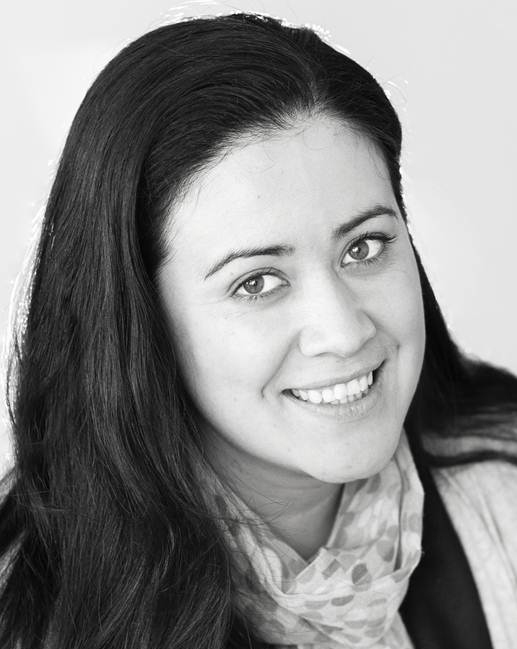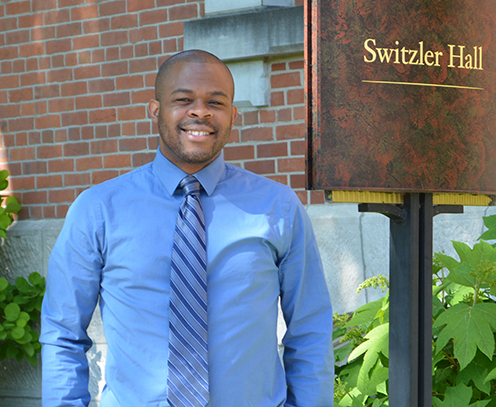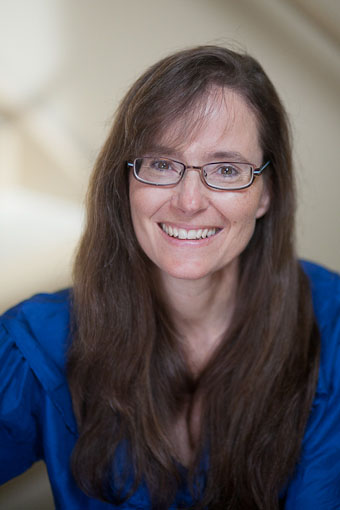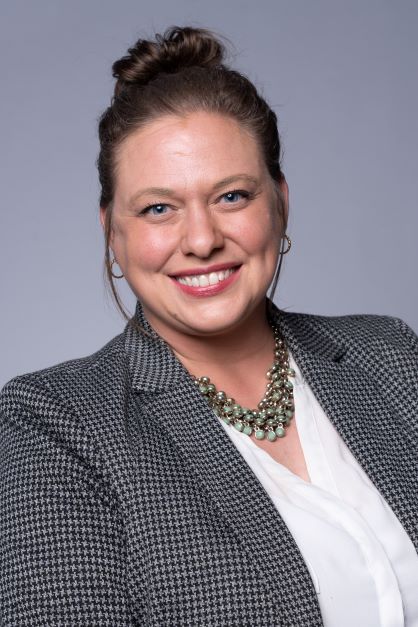Astrid M. Villamil (PhD, University of Kansas) is an assistant professor in the Department of Communication at the University of Missouri-Columbia. Astrid’s research focuses on communication practices around equity, diversity, and inclusion. Informed by critical and interpretive perspectives, Astrid’s research investigates organizational tensions between bureaucratic and social transformation efforts in organizational DEI. In addition, she examines transnational and intersectional constructions of (dis)organizing processes to understand how these processes occur outside North American and Eurocentric contexts. Her work has appeared in Communication Monographs, Journal of Applied Communication Research, Women’s Studies in Communication, and Sustainability.

Dr. Benjamin (Ben) R. Warner (Ph.D., University of Kansas) is Professor in the Department of Communication and director of the Political Communication Institute. He is interested in the effects of partisan media, presidential debates, campaign ads, social media, and political humor. Much of Dr. Warner’s research explores the antecedents, consequences, and remedies of political polarization. He draws on theories of persuasion, intergroup processes, and media psychology. He is editor of Democracy Disrupted: Communication in the Volatile 2020 Election and An Unprecedented Election: Media, Communication, and the 2016 Campaign. He has published in Communication Monographs, Political Communication, Mass Communication and Society, Journalism and Mass Communication Quarterly, Journal of Applied Communication Research, and a variety of other outlets.
Graduate
Comm 9630 – Political Advertising
Comm 9630 – Political Campaign Debates
Comm 8610 – Survey of Political Communication Research
Comm 8170 – Advanced Topics in Quantitative Methods
Comm 8170 – Quantitative Methods in Communication 2
Comm 8160 – Rhetorical Criticism
Comm 8120 – Quantitative Methods in Communication 1
Comm 8001 – Survey of Persuasion
Comm 8001 – Politics and New Media
Comm 8001 – Political Polarization
Undergraduate
Comm 4474 – Theory and Research in Persuasion
Comm 4473 – Political Communication
Comm 3572 – Argumentation & Advocacy
Warner, B. R., Bystrom, D. G., McKinney, M. S., & Banwart, M. C. (Eds.) (2022). Democracy disrupted: Communication in the volatile 2021 presidential election. Santa Barbara, CA: Praeger.
Warner, B. R., Bystrom, D. G., McKinney, M. S., & Banwart, M. C. (Eds.) (2018). An unprecedented election: Media, communication, and the electorate in the 2016 campaign. Santa Barbara, CA: Praeger.
Park, J. Warner, B.R. (2024). Does collectivism make a difference?: A comparative test of common ingroup strategies to reduce affective polarization. International Journal of Public Opinion Research, 36(3), https://doi.org/10.1093/ijpor/edae033
Warner, B. R., Park, J., Kim, G.-E., McKinney, M. S., & Paul, W. B. (2024). Do presidential primary debates increase political polarization? American Behavioral Scientist, 68(1), 80-96. https://doi.org/10.1177/00027642211026613
Warner, B. R., Colaner, C. W., & Park, J. (2021). Political difference and polarization in the family: The role of (non)accommodating communication for navigating identity differences. Journal of Social and Personal Relationships, 38(2), 564-585. https://doi.org/10.1177%2F0265407520967438
Warner, B. R., McKinney, M. S., Bramlett, J., Jennings, F. J., & Funk, M. (2020). Reconsidering partisanship as a constraint on the persuasive effects of debates. Communication Monographs, 87, 137-157.
Warner, B. R., Horstman, H. K., & Kearney, C. C. (2020). Testing a narrative writing intervention to reduce affective political polarization. Journal of Applied Communication Research, 48, 459-477.
Wocjieszak, M. E. & Warner, B. R. (2020). Can interparty contact reduce affective polarization? A systematic test of different forms of intergroup contact. Political Communication, 37, 789-811.
Warner, B. R. (2018). Modeling partisan media effects in the 2014 U.S. midterm elections. Journalism & Mass Communication Quarterly, 95, 647-699.
Warner, B. R., Villamil, A. (2017). A test of imagined contact as a means to improve cross-partisan feelings and reduce attribution of malevolence and acceptance of political violence. Communication Monographs, 84(4), 447-465.
Dr. Julius Matthew Riles (Ph.D., University of Illinois – Urbana/Champaign) researches the interplay between media use and social relationships. He theoretically approaches this examination from several perspectives. Specifically, Dr. Riles psychologically explores how exposure to diverse social group portrayals can influence social perceptions and inclinations pertaining to those groups, the mechanisms by which social relationships influence media use, and the experience of parasocial relationships with figures in the media. His research agenda concerns practices pertaining to both traditional and digital media, and his interdisciplinary approach has led to research in the sub-disciplines of both health communication and political communication. Dr. Riles has been published in top-ranked peer-reviewed outlets such as the Journal of Communication, New Media & Society, Communication Research, Media Psychology, Communication Monographs, and Health Communication.
Throughout his academic career, Dr. Riles has received several awards for teaching, research, and service. For example, he was a co-recipient of the Outstanding Article Award from the International Communication Association. He was also honored with the Advisor of the Year Award by the Department of Communication graduate student body and the Mass Communication Division Teaching Award from the National Communication Association. Dr. Riles is currently serving as Associate Editor for Communication Monographs, as well as the Journal of Applied Communication Research. Moreover, he serves as Co-Director for the Media & Diversity Center out of the University of Missouri.
- COMMUN 3490: Mediated Communication Theory and Effects
- COMMUN 8140: Seminar in Content Analysis
- COMMUN 8510: Mediated Communication Theory Seminar
- COMMUN 9530: Topics in Mediated Communication: Media Use and Social Relationships Seminar
Riles, J.M., Davis, W.M. & Cen, X. (2024). The disparate prosocial implications of ongoing entertainment health media exposure: A multi-malady stigma communication comparison. Journal of Broadcasting & Electronic Media. Advanced online publication.
Roscoe, R. A., Riles, J. M., & Schroeder, M. (2024). Veterans’ Exposure to News Portrayals of Military-Related Posttraumatic Stress and Support for Government Health Interventions: Influences of Stigma and Halo Communication. Journal of Health Communication, 29(5), 319-326.
Riles, J.M., & Adams, K. (2023). Parasocial experiences as a function of racial and ethnic identity. In Forster, R. (Ed.) Handbook of parasocial experiences. Oxford University Press: Oxford, U.K.
Riles, J. M., Ramasubramanian, S., & Behm-Morawitz, E. (2022). Theory development and evaluation within a critical media effects framework: An intersectional identity approach to media psychology. Journal of Media Psychology: Theories, Methods, and Applications, 34(2), 101-112.
Wiemer, E. C., Riles, J. M., & Tewksbury, D. (2022). Artists and attributions: How music platform implementation affects parasocial experiences and support intentions. Journal of Broadcasting & Electronic Media, 66(2), 300-319.
Riles, J. M., Miller, B., Funk, M., & Morrow, E. (2021). The modern character of mental health stigma: A 30-year examination of popular film. Communication Studies, 72(4), 668-683. Communication Studies, 72(4), 668-683.
Riles, J. M., Funk, M., Miller, B., & Morrow, E. (2021). An Inclination for Intimacy: Depictions of Mental Health and Interpersonal Interaction in Popular Film. International Journal of Communication, 15, 2260-2280.
Riles, J. M., & Adams, K. (2021). Me, myself, and my mediated ties: Parasocial experiences as an ego-driven process. Media Psychology, 24(6), 792-813.
Riles, J. M. (2020). The social effect of exposure to mental illness media portrayals: Influencing interpersonal interaction intentions. Psychology of Popular Media, 9(2), 145-154.
Riles, J.M., Behm-Morawitz, E., Shin, H., Funk, M. (2020) The effect of news peril-type on social inclinations: A social group comparison. Journalism & Mass Communication Quarterly, 97(3), 721-742.
Riles, J.M., Funk, M., & Davis, W. (2019). Positive exposure to Muslims and perceptions of a disdainful public: A model of mediated social dissent. Communication Monographs, 86(3), 292-312.
Riles, J.M., Varava, K., Pilny, A., & Tewksbury, D. (2018). Representations of interpersonal interactions and race/ethnicity: An examination of prime-time network television. Journal of Broadcasting & Electronic Media , 62(2), 302-319.
Riles, J.M., Pilny, A., Tewksbury, D. (2018) Media fragmentation in the context of bounded social networks: How far can it go? New Media & Society, 20(4), 1415-1432.
LaVoie, N., Quick, B., Riles, J., & White, N. (2017). Graphic cigarette warning labels: An examination of psychological reactance and source appraisal. Communication Research, 44(3), 416-436.
Riles, J. M., Sangalang, A., Hurley, R. J., & Tewksbury, D. (2015). Framing Cancer for Online News: Implications for Popular Perceptions of Cancer. Journal of Communication, 65(6), 1018-1040.
Dr. Rebecca Meisenbach researches issues of marginalized identity and ethics in organizational life. She has researched identity negotiations among higher education fund-raisers, community choir members, working moms, female breadwinners, and pageant participants. Most recently she has been exploring stigma as an intersectional communication process operating at individual and organizational levels. Her theory of Stigma Management Communication focuses on the interactions of stigma attitudes and stigma management strategies.
She currently serves on four editorial boards, is past Editor-in-Chief of the flagship journal for research on organizational communication, Management Communication Quarterly. and is a past associate editor of the journal Culture and Organization. Her research has been published in a variety of disciplinary journals including: Communication Monographs, Health Communication, Human Relations, Journal of Applied Communication Research, Management Communication Quarterly, Nonprofit Management and Leadership, and Sex Roles.
Dr. Meisenbach founded the Department of Communication’s summer study abroad program and teaches courses in organizational communication, communication theory, and qualitative research methods.
Identity Negotiation
Organizational Ethics
Stigma Management
Strategic Communication
Comm 3050 - Introduction to Communication
Comm 3460 - Organizational Advocacy
Comm 4476 - Organizational Communication
Comm 8130 - Seminar on Qualitative Methods –Phenomenology and Ethnography
Comm 8410 – Introductory Graduate Seminar in Organizational Communication Theory
Villamil, A., Branton, S. & Meisenbach, R. J. (2024). Inclusion and equity in organizational communication. In V. D. Miller & M. S. Poole (Eds.), Handbook of organizational communication science. De Gruyter.
Meisenbach, R. J., & Pringle, M. S., (2024). Phenomenological approaches to qualitative organizational communication research. In B. H. J. M. Brummans, B. C. Taylor, & A. Sivunen (Eds.), SAGE Handbook of qualitative research in organizational communication. SAGE.
Valiavska, A., & Meisenbach, R. (2023). Racialized scripts of silence: How whiteness organizes silence as a response to social protest about racism in the United States. Journal of Applied Communication Research, 51(6), 582–601. https://doi.org/10.1080/00909882.2023.2169888
Ranjit, Y. S., Das, M., & Meisenbach, R. (2023). COVID-19 Courtesy stigma among healthcare providers in India: A study of stigma management communication and its impact. Health Communication, 38(13), 2833–2842. https://doi.org/10.1080/10410236.2022.2122279
Meisenbach, R. J., & Hutchins, D. (2020). Stigma communication and power: Managing inclusion and exclusion in the workplace. In M. Doerfel and J. Gibbs (Eds.) Organizing inclusion: Moving diversity from demographics to communication processes (pp. 25-42). Routledge.
Meisenbach, R. J., Rick, J. M., & Brandhorst, J. (2019). Managing occupational identity threats and job turnover: How former and current fundraisers manage moments of stigmatized identities. Nonprofit Management and Leadership, 29(3), 383-399. https://doi.org/10.1002/nml.21332
Meisenbach, R. J. (2010). Stigma management communication: A theory and agenda for applied research on how individuals manage moments of stigmatized identity. Journal of Applied Communication Research, 38, 268-292.
Meisenbach, R. J. (2010). The female breadwinner: Phenomenological experience and gendered identity in work-family spaces. Sex Roles: A Journal of Research, 62 (1&2), 2-19.

Dr. Stephen A. Klien serves as the Director of Undergraduate Studies for the Department of Communication. He teaches courses in introduction to communication, public speaking, argumentation, and political communication. He also has professional experience in faculty development and is a current Faculty Fellow for MU’s Teaching for Learning Center (T4LC) specializing in the evaluation of teaching. His present research focuses on how the implementation of career exploration assessments in the Communication curriculum improves career self-efficacy and self-determination in undergraduate students. His current work is also focused on the development of training resources for improving the collection, interpretation and use of student feedback survey data by faculty. Past research involves the criticism of contemporary political rhetoric, with particular attention paid to the constitution of public character and citizen agency. This work has focused on the rhetorical construction of ideology and agency by conservative popular media, as well as on the constitution of citizen agency in post-9/11 war films.
- Comm 1200 – Public Speaking
- Comm 2500 – Introduction to Communication
- Comm 3572(H) – Argument and Advocacy
- Comm 4940 – Internship
Klien, S.A. (2024). Promoting career exploration and student choice in the introductory course: The communication career awareness research project. Communication Teacher, 38(3), 276-289. https://doi.org/10.1080/ 17404622.2024.2350394
Klien, S.A., Elmer, J.W., & Rottinghaus, P.J. (2024). Using a career research project in the introductory communication course to develop agency, self-efficacy, self-determination, and adaptability in career exploration. Journal of Communication Pedagogy, 8, 24-47. https//doi.org/10.31446/JCP.2024.1.03
Klien, S.A. (2015). Cinematic simulacra and the prospect for public agency: Constructing the citizen-soldier in post-9/11 war films. In E. Sahlstein Parcell and L.M. Webb (Eds.), A communication perspective on the military: Interactions, messages, and discourses (pp. 373-390). Peter Lang. https://doi.org/10.3726/978-1-4539-1562-2
Klien, S.A. (2013). O’Reilly’s war on the “war on Christmas”: Diatribe, culture war and conservative ideology. In C. Rountree (Ed.), Venomous speech: Problems with American political discourse on the right and left (pp. 269-298). Praeger / Bloomsbury Publishing.
Klien, S.A., and Farrar, M.E. (2009). The diatribe of Ann Coulter: Gendered style, conservative ideology, and the public sphere. In J.L. Edwards (Ed.), Gender and political communication in America: Rhetoric, representation, and display (pp. 63-85). Lexington Books.
Klien, S.A. (2007). Complexity and ideology in televisual war rhetoric: The air war over Iraq in Campaign 2004. In D. Zarefsky and E. Benacka (Eds.), Sizing up rhetoric (pp. 181-199). Waveland Press.
Klien, S.A. (2005). "Leave no man behind": The construction of public character, institutional legitimacy, and citizen agency in Black Hawk Down. Critical Studies in Media Communication, 22, 427-449. https://doi.org/10.1080/07393180500342993

Ph.D., 2015, Speech Communication, University of Illinois at Urbana-Champaign
M.A., 2007, Speech Communication, University of Illinois at Urbana-Champaign
Dr. Christopher S. Josey (Ph.D., University of Illinois) is an Assistant Teaching Professor within the Department of Communication. His research resides at the intersection of new technology, media effects, and media stereotyping. Dr. Josey’s work examines how persons of color are framed stereotypically within news and the effects that such portrayals have on media consumers. His research has been published in Communication Research, Discourse and Society, among others. His most recent investigations examine the role of stereotype and counter-stereotype endorsement in the consumption, evaluation, sharing, and internalization of news content.
Media Communication in Society (COMM 2100)
New Technologies and Communication (COMM 4638)
Race and the Media (COMM 4701)
William T. Kemper Fellow, 2023
Undergraduate Research Mentor of the Year, 2022
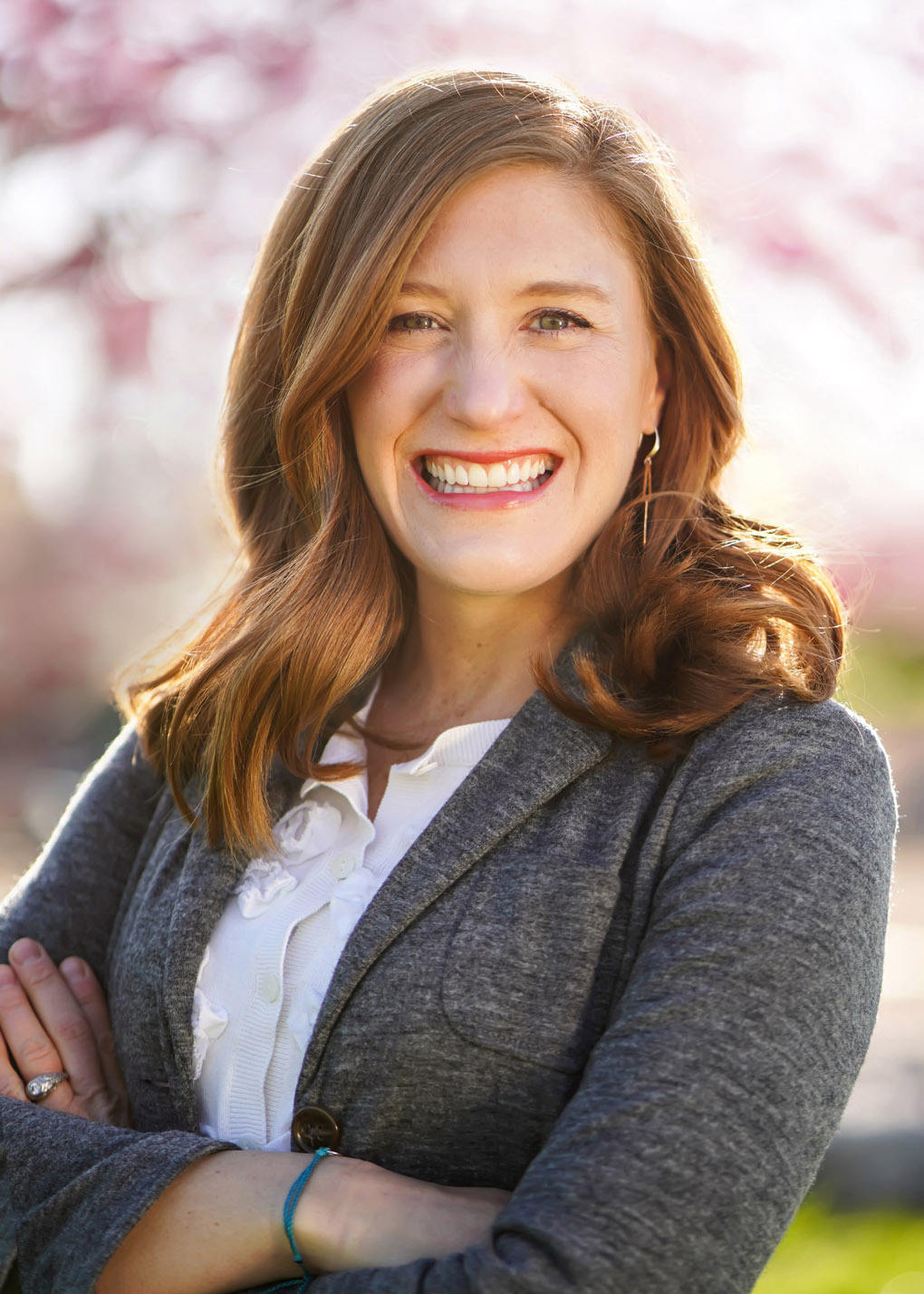
PhD, University of Nebraska-Lincoln (2012)
Dr. Haley Kranstuber Horstman (Ph.D., University of Nebraska-Lincoln) researches how families communicate to make sense of their adversity and diversity. She grounds much of her work in narrative theorizing and methodology. Currently, she is studying intergenerational family storytelling in international families, along with research in contexts of miscarriage and adoptive families, among others. Her work has been published in top-ranked peer-reviewed journals such as Communication Monographs, Communication Research, Health Communication, Journal of Social and Personal Relationships, and been awarded more than fifteen Top Paper Awards at academic conferences.
Dr. Horstman has been awarded and consulted on several federal, foundation, and university-funded grants, including those funded by the National Science Foundation, National Institutes of Health, MU’s Research Council, and MU’s Tri-Continental (3C) Partnership Grant as well as the Fulbright U.S. Scholar Award to research family storytelling and resilience in Warsaw, Poland. She was recently awarded the Associate Professor of the Year in MU’s College of Arts & Sciences.
Dr. Horstman is the director of international programs in the department and oversees the Communication and Culture study abroad program in Siena, Italy (https://communication.missouri.edu/undergrad/abroad).
Websites:
- COMMUN 3561 – Relational Communication
- COMMUN 3422 – Communication Research Methods
- COMMUN 8310 – Seminar in Interpersonal Communication
- COMMUN 9280 – Seminar in Communication Theory
- COMMUN 9310 – Seminar in Family Communication
- COMMUN 9330 – Special Topics in Interpersonal Communication – Narratives in and about Personal Relationships
* Graduate student author; ** Undergraduate student author
Helder, E.J., Horstman, H. K., Henness, J., *Lyssy, K., **Vallance, C., **Warners, A. L., & **Bailey, F. X. (2024). Religious meaning-making in adoption: Perspectives of adult adoptees. Journal of Social and Personal Relationships. Advance online publication. https://doi.org/10.1177/02654075241276696
Horstman, H. K., Bohanek, J., *Łapińska, E., *Watson, O., Cierpka, A., & Małek, K. (2024). “Living the stories of your great-grandmother:” Making sense of Russia’s war in Ukraine through Polish intergenerational family storytelling. Communication Monographs. Advance online publication. https://doi.org/10.1080/03637751.2024.2349570
Horstman, H. K., & *Leverenz, A. (2024). “It's like rowing upstream in the dark:” Using metaphors from pandemic pregnancy to inform messaging for future public health crises. Communication Reports, 37(2), 96-108. https://doi.org/10.1080/08934215.2024.2303649
Horstman, H. K., Pedro, A., *Goldschmidt, T., *Watson, O., & Butauski, M. (2023). Exploring resilience and communicated narrative sense-making in South Africans' stories of apartheid. International Journal of Communication, 17(23), 3207-3325. https://ijoc.org/index.php/ijoc/article/view/19464/4166
Horstman, H. K., *Leverenz, A., *Morrison, S., *Jordan, E., *Baltazar, A., *Cen, X., *Charvat, E., *Okafor, B., & Butauski, M. (2023). Pregnancy during the COVID-19 pandemic: Communicated narrative sense-making and resilience. Health Communication. https://doi.org/10.1080/10410236.2022.2163103
Horstman, H. K., *Morrison, S. M., McBride, C., & Holman, A. (2023). Memorable messages embedded in men’s stories of miscarriage: Extending communicated narrative sense-making and memorable message theorizing. Health Communication, 38(4), 742-752. https://doi.org/10.1080/10410236.2021.1973718
Colaner, C. W., *Bish, A., *Butauski, M., *Hays, A., & Horstman, H.K., *Nelson, L. R. (2022). Communication privacy management in open adoption relationships: Negotiating co-ownership across in-person and mediated communication. Communication Research, 49(6), 816-837. https://doi.org/10.1177/0093650221998474
Debbie S. Dougherty (Ph.D. University of Nebraska, 2000) is Professor of Communication at University of Missouri and the Editor in Chief for the Journal of Applied Communication Research. She has served as the Associate Dean of Research for the College of Arts and Science, Interim Chair for the Department of Communication, and as a Faculty Fellow for the Vice Chancellor for Inclusion, Diversity, and Equity. Her research program explores the relationship between power and organizing, particularly as related to both sexual harassment and social class. She is most widely recognized for her research on the relationship between organizational culture and sexual harassment with numerous publications on this topic in national and international journals. She has provided training and development on sexual harassment with organizations such as the U.S. Army, the National Park Service, and PFS Brands and provides professional support to other organizations seeking information about sexual harassment. She has had a number of speaking engagements on sexual harassment and has been extensively utilized as a resource for news sources such as the New York Times, Newsweek, Forbes, and the Oprah Magazine.
Her research has been published in journals such as Harvard Business Review, Human Relations, Journal of Communication, Human Communication Research, Communication Monographs, Management Communication Quarterly, Journal of Applied Communication Research, and Sex Roles. She is currently the editor for Journal of Applied Communication Research and sits on the editorial board for seven scholarly journals. She has received numerous awards for her research and community projects including 10 top paper awards, The Jack Kay Award for Engaged Research, the Management Communication Quarterly Article of the Year Award, the Norman K. Denzin Qualitative Research Award, the Excellence in Education Award, and the Gold Chalk Award for graduate student mentoring.
Organizational power, especially as it relates to sexual harassment
Emotion in organizations
Feminist standpoint theory
Com 4476 - Organizational Communication
Com 4974 - Senior Capstone
Com 8110 - Introduction to Graduate Study in Communication
Com 8130 - Seminar on Qualitative Methods
Authored Books
Dougherty, D. S. (2011). The Reluctant Farmer: An Exploration of Work, Social Class, and the Production of Food. Troubador Publishing.
Sample Publications in Peer Reviewed Journals
Dougherty, D. S. & Goldstein Hode, M. (2016). Binary Logics and the Discursive Interpretation of Sexual Harassment Policies. Human Relations.
Krone, K. J. & Dougherty, D. S. (2015). From emotional labor to critical emotional agency. The Electronic Journal of Communication. Volume 25, http://www.cios.org/getfile/025302_EJC
Bisel1, R. S., Barge, K. J., Dougherty, D.S. Lucas, K. & Tracy, S. J. (2014). A round-table discussion of “Big” data in qualitative organizational communication research. Management Communication Quarterly, 28, 625-649.
Dixon, J., & Dougherty, D.S. (2014). A Language Convergence/Meaning Divergence Analysis Exploring How LGBTQ and Single Employees Manage Traditional Family Expectations in the Workplace. Journal of Applied Communication Research 42, 1-19
Denker, K, & Dougherty, D.S. (2013). Corporate colonization of couples' work-life negotiations: Rationalization, emotion management, and silencing conflict. Journal of Family Communication, 13, 242-262.
Smith, F., & Dougherty, D. S. (2012). Retirement and the American dream: A master Narrative. Management Communication Quarterly, 26, 453-478. Winner of the Management Communication Quarterly Article of the Year.
Dougherty, D. S., *Mobley, S., & *Smith, S. (2010). Language Convergence and Meaning Divergence: A theory of intercultural communication. Journal of International and Intercultural Communication, 3,164-186.
Dougherty, D. S., Kramer, M. W., *Klatzke, S. R. & *Rogers, T. K. K. (2009) Language convergence and meaning divergence: A meaning centered communication theory. Communication Monographs.76, 20-46.
Dougherty, D. S., & *Drumheller, K. (2006). Sensemaking and emotions in organizations: Accounting for emotions in a rational(ized) context. Communication Studies 57, 215-238.
*McGuire, T., & Dougherty, D. S., & *Atkinson, J. (2006). “Paradoxing the dialectic”: The impact of patients’ sexual harassment in the discursive construction of nurses’ caregiving roles. Management Communication Quarterly, 19, 416-450.
Dougherty, D. S., & *Atkinson, J. (2006). Competing ethical communities and a researcher’s dilemma: The case of a sexual harasser. Qualitative Inquiry, 12, 292-315.
B.A. University of Missouri - Film Studies (2013)
Currently Pursuing an M.A. in Documentary Journalism at the University of Missouri-Columbia
Michael Coleman is a documentary filmmaker, editor, and educator. He is a prolific film-viewer and lifelong student of the craft and history of cinema. His short film DV Footage Log 2014-2020, premiered at the second annual Film Diary NYC series at the Millennium Film Workshop. He produced the feature documentary To Love The Void , which premiered at the Brooklyn International Film Festival. Most recently, Michael was selected to screen a rough cut of his new film Satan’s Greatest Lies, as part of the Work It Out Program at the First Look Film Festival hosted by the Museum of Moving Images in Queens, NYC. He is currently developing Satan’s Greatest Lies into his first feature length documentary.
Non-Fiction Cinema, Filmmaking as Therapy, Collaborative Editing
- Introduction to Digital Media Production
- Digital Media Production 1
- Digital Media Production 2
- Social Media Production
- Cinematography
- Post-Production
Dr. Colleen Warner's research examines how communication shapes and sustains relationships in complex, diverse, and modern family structures and experiences. A major focus of her research is communication in adoptive families, examining how adoptive parents’ communication with and about birth families sustains adoptee well-being. Colleen also researches links between family communication and diverse social identities, such as religion and political identification. In this work, Colleen focuses on children’s communication experiences and abilities, with an aim to understand children’s unique perceptions of their family relationships.
Colleen takes an applied approach to scholarship by translating family communication research to families in the community. Colleen serves as a family communication educator, partnering with mental health professionals in Columbia to provide families with strategies for connecting and coping. Her research is solution-focused to provide families with communication processes to support relational health and personal well-being.
Colleen's work has been published in Communication Monographs, Communication Research, Sex Roles, Journal of Family Communication, and Adoption Quarterly in addition to regional and specialty journals. She has also presented her work and received top paper awards at a number of regional and national conferences. Colleen’s work has been supported with grants from the Organization for Research on Women and Communication as well as the University of Missouri (Research Board, Research Council, Arts and Science Alumni Organization Faculty Incentive Grant, and the Richard Wallace Alumni Fund). She was also the recipient of a University of Missouri College of Arts and Science fellowship in 2015. Colleen is on the editorial board of Journal of Family Communication, Western Journal of Communication, and Southern Communication Journal. Colleen is active in the family and interpersonal divisions of the National Communication Association.
Family diversity; Identity in family and personal relationships; Discourse dependence; Adoptive families; Interfaith families; Intergroup theorizing; Social identity difference; Children’s communication; Family communication training
COMMUN 4520 Family Communication
COMMUN 4701 Children’s Communication
COMMUN 9310 Seminar in Family Communication
Braithwaite, D., Schrodt, P., & Warner, C. (2024). Family communication: Cohesion and change (11th ed.). Routledge.
Colaner, C. W., Atkin, A. L., Elkhalid, A., Minniear, M., & Soliz, J. (2022). Communication in interfaith and multiethnic-racial families: Navigating identity and difference in family relationships. Journal of Social and Personal Relationships. 40(6), 1673-1705. https://doi.org/10.1177/02654075221137317
Ogan, M. A.*, Monk, J. K., Killoren, S., Rivero, A., Colaner, C. W., & Carlos Chavez, F. L. (2022). The effects of discrimination and psychological distress on U.S. Latino/a young adults’ relational uncertainty and relationship instability. Cultural Diversity and Ethnic Minority Psychology. Advance online publication. https://doi.org/10.1037/cdp0000567
Colaner, C. W. (2022). Adoption, communication, and family networks: Current research and future directions. Journal of Family Communication, 22(3), 185-192. https://doi.org/10.1080/15267431.2022.2101458
*Charvat, E. J., Garneau-Rosner, C. L., Monk, J. K., & Colaner, C. W. (2022). The intergenerational transmission of relationship instability: A focus on emerging adult on-off relationships. Family Process, 62(1), 423-441. https://doi.org/10.1111/famp.12765
Hernandez, R. & Colaner, C. W. (2022). “The stakes are so high and it’s happening so fast”: Parentification of adult children during the COVID-19 pandemic. Journal of Social and Personal Relationships, 39(7), 1959–1978. https://doi.org/10.1177/02654075221074380
Colaner, C. W., *Elkhalid, A., *Bish, A., *Butauski, M., *Nelson, L., & *Rick, J. (2021). Communicatively constructing godparenthood: Relational maintenance and relational closeness. Journal of Family Communication, 21(2), 107-117, https://doi.org/10.1080/15267431.2021.1903901
Colaner, C. W., *Bish, A., *Butaski, M., *Hays, A., Horstman, H., & Nelson, L. R. (2022). Communication privacy management in open adoption relationships: Negotiating co-ownership across in-person and mediated communication. Communication Research, 49(6), 816-837. https://doi.org/10.1177/0093650221998474
Hernandez, R. & Colaner, C. W. (2021). “This is not the hill to die on. Even if we literally could die on this hill”: Examining communication ecologies of COVID-19 uncertainty, family communication, and healthcare. American Behavioral Science, 65(7), 956-975. https://doi.org/10.1177/0002764221992840
McQuillan, J, Greil, A. L., Rybinska, A., Tiemeyer, S., Shreffler, K., & Colaner, C. W. (2021). Is a dyadic stressor experienced as equally distressing by both partners? The case of perceived fertility problems. Journal of Social and Personal Relationships, 38(1), 342-362. https://doi.org/10.1177/0265407520953903
Warner, B., Colaner, C. W., *Park, J. (2021). Political difference and polarization in the family: The role of (non)accommodating communication for navigating identity differences. Journal of Social and Personal Relationships, 38(2), 564-585. https://doi.org/10.1177/0265407520967438
*Nelson, L. R., & Colaner, C. W. (2020). Fostering “family”: Communication orientations in the foster parent-child relationship. Western Journal of Communication, 84(4), 476-498. https://doi.org/10.1080/10570314.2020.1734231
Soliz, J. & Colaner, C. W. (Eds.). (2020). Navigating relationships in the modern family: Communication, identity, and difference. Peter Lang.
